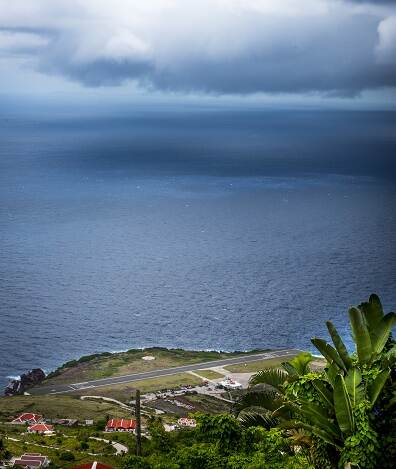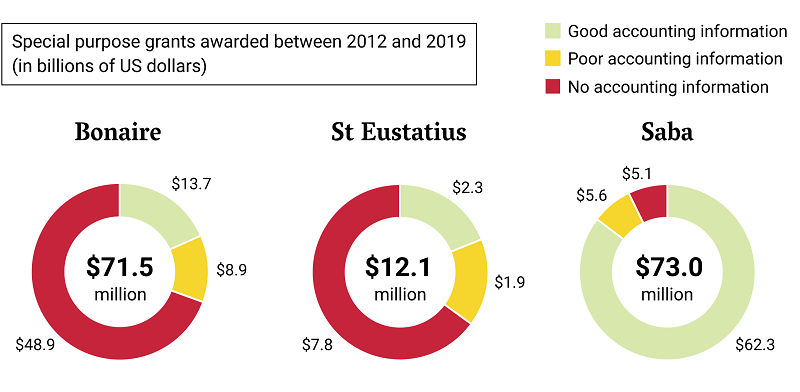BES islands: poor insight into special purpose grants
Parliament receives incomplete or inadequate information from the Minister of the Interior and Kingdom Relations (BZK) and the Minister of Finance on Bonaire, St Eustatius and Saba’s use of special purpose grants. Moreover, there are shortcomings in Bonaire and St Eustatius’s supervision of and accountability for the special purpose grants they receive. Saba, however, accounts appropriately for its expenditure. These findings are presented in an audit report issued today by the Netherlands Court of Audit

Special purpose grants are one-off or temporary payments made to Bonaire, St Eustatius and Saba in order to achieve a particular goal, such as the construction of a new library, the appointment of a neighbourhood sports coach or improved childcare facilities. They are similar to the specific purpose grants ministers award to municipalities in the Netherlands.
The information submitted to parliament indicates that several ministries awarded special purpose grants to an amount of more than €176 million between 2011 and 2019. The Court of Audit, however, found that the Ministries of BZK and Finance were unable, when requested, to provide a statement of all the special purpose grants awarded. The ministries do not have such a statement and accordingly cannot verify the information submitted to parliament. Furthermore, parliament has received no information on the outcomes of the special purpose grants. The Court of Audit recommends that the Ministers of BZK and Finance keep full and accurate accounts of the special purpose grants awarded to the BES islands, including information on the intended goals, the progress towards them and the outcomes of the projects and activities funded.
Furthermore, ministers inadequately consider the long-term financial consequences for the BES islands of the one-off or temporary special purpose grants they award, such as higher maintenance and operating costs. Without careful consideration of the full costs and benefits (both incidental and structural) of a grant, there is a risk of projects being accompanied by high maintenance costs, leading to new socioeconomic disadvantages. For example, Saba received $1.5 million in 2014 to invest in a waste separation plant. However, the Ministry of Infrastructure and Water Management did not explain the financial consequences of the investment. The higher structural waste management costs have risen since 2014 to about $1.3 million per annum. Saba has to meet these additional costs from its own budget.
There are shortcomings in Bonaire and St Eustatius’s accounts of their use of special purpose grants. The two islands regularly submit their annual accounts to their respective island councils after the due date, often without an unqualified auditor’s report and with too little information to account for their use of the grants. The island councils therefore cannot establish whether the money was spent regularly, whether a grant’s goals were actually achieved and what precisely a project cost. Saba, on the other hand, does account adequately for the special purpose grants it receives.
Very little policy-related accounting information in annual accounts of Bonaire and St Eustatius

The quality of Bonaire and St Eustatius’s financial management has been inadequate for many years. Without orderly and auditable financial management, Bonaire and St Eustatius cannot produce reliable information on the expenditure they incur. We recommend that the Minister of BZK vigorously continue the measures taken in this area in support of the islands’ financial management.